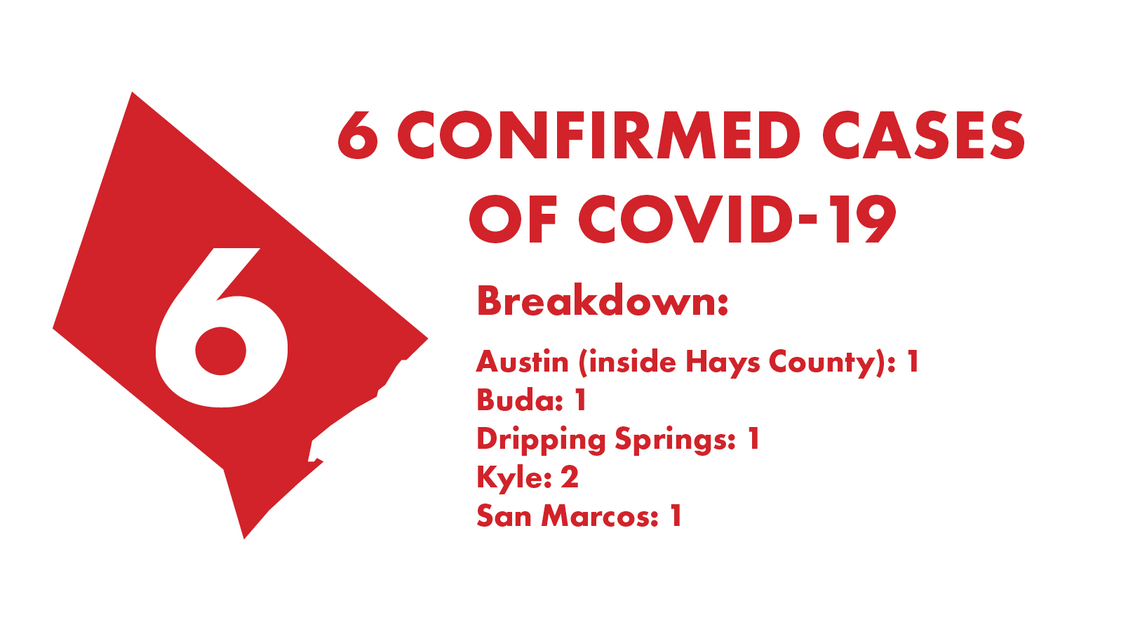Hays County announced two new cases of COVID-19 on Thursday, bringing the total up to 13.
The county said Friday that no new cases were reported. All 13 patients who have tested positive for the coronavirus are adults. One of the new patients is a resident of Dripping Springs and one is a resident of Kyle.
Additionally, the county stated Thursday that the Hays County Health Department has received 131 negative test results and 21 test results are pending. One of the original positive cases — a Kyle resident — has recovered and is out of self-quarantine.
As of Thursday, There have been four cases in Kyle, three in Buda and Dripping Springs, respec-tively; two in San Marcos and one in Austin, within the county.
Symptoms of COVID-19 can appear between 2-14 days of exposure to the virus. Symptoms include fever, cough and shortness of breath. The Center for Disease Control and Prevention states that people should seek medical attention if they display one or more of the following symptoms: difficulty breathing or shortness of breath; persistent pain or pressure in the chest; new confusion or inability to arouse; or bluish lips or face. The CDC recommends calling a doctor’s office or emergency room before going. Those who self-isolate with COVID-19 can leave self-isolation if they haven't had a fever for at least 72 hours (without the use of medicine that reduces fevers), symptoms have improved and it’s been at least 7 days since symptoms first appeared, according to the CDC.
“Residents with underlying health conditions or a weakened immune system and persons over 65 tend to be hardest hit by COVID-19 and should consult their health care provider if they are experiencing symptoms,” Hays County Epidemiologist Eric Schneider said.
Texas State faculty member tests positive for coronavirus
A Texas State faculty member tested positive for COVID-19 after becoming ill during spring break, the university announced Friday.
The faculty member was on campus on March 9 and 11. But the Hays County Health Department determined that the risk to the university is "very low."








